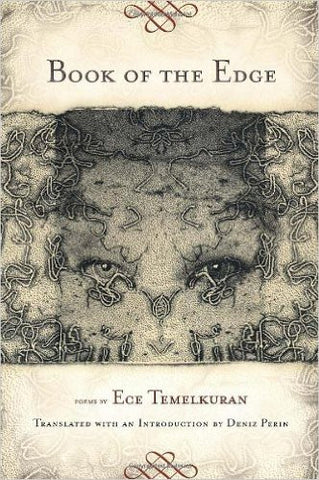
About This Title
Translated with an Introduction by Deniz Perin
Ece Temelkuran is arguably Turkey’s most accomplished young writer. Born 1973 in Turkey, she has published eight books of poetry, prose, and nonfiction. An award-winning daily columnist for Milliyet, she was 2008 Visiting Fellow at the University of Oxford’s Reuters Institute for the Study of Journalism. In Book of the Edge, Temelkuran describes an allegorical journey wherein the speaker, or explorer, encounters strange creatures, including a butterfly, bull, swordfish, sow bug, and cruel city dwellers. These poems point to the undeniable connection between all living beings.
“Offering”
You are earth. You lie beneath everything.
Everything is above you. Even the earth’s crust.
You are water.
You are afraid of—and for—the stones you will strike as you flow.
You stop for fear that the stone’s skin be scraped.
Go on, flow.
You’ll stop if the stone bleeds.
If you fear pain, you’ll exhaust yourself.
You are air. Wind curves inside you.
Whereas you are invisible.
Blow.
Even if no trace of you remains, plane trees remember every breeze.
O reader! Me? I am like this, too.
I may not know it yet:
I am just like you.
You must believe me, believe people.
For there are no kindhearted gods!
And that is why, though we may be
Water, earth, air, and we may each be a universe,
We appear as somebody among the crowds.
So now,
From here, you can set out again, on your own journey.
Praise for Book of the Edge
“The poems in Book of the Edge are not overtly political. Some are not political at all. Those that make political statements do so in an understated, allegorical way. Temelkuran’s goal in these poems is to explore the human condition, exposing our weaknesses and our potential. But her insight into, and interpretation of, this human condition are undoubtedly inspired, at least in part, by her socially-involved upbringing and her many years of work as a journalist.”
“The book is, to use Baudelaire’s words, an invitation to a voyage. The speaker asks the reader to become an explorer, to leave the city and embark upon a journey of self-discovery. Although each poem stands alone, the poems work together to describe this quest; they turn into a modern, poetic fable, in which speaker, explorer, and reader merge into one. ‘You may not know it yet,’ says the speaker in the prologue, a wink at what is to come. ‘You are just like me.’”—Deniz Perin, from the Introduction
Publication Date: July 1, 2010
ISBN: 978-1-934414-36-1
© BOA Editions, Ltd. 2010

